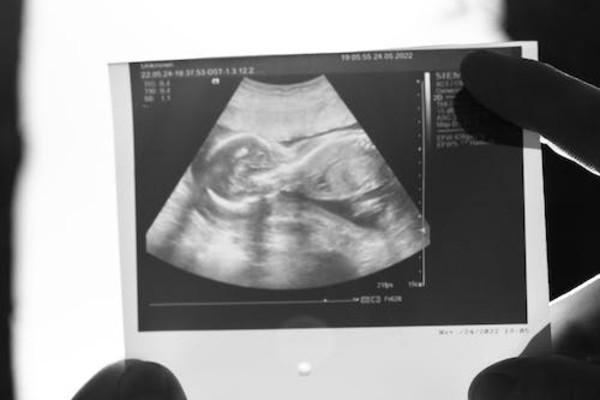
For Teachers & Professionals
Testicular cancer and Sexuality
Testicular cancer occurs in the testicles (testes), which are located inside the scrotum. The testicles produce male sex hormones and sperm for reproduction. Testicular cancer is the most common cancer among males and occurs between the ages of 15 and 44. The incidence rate of testicular cancer was 1.5 per 100,000 people in the world. The highest incidence rate was observed in Europe and the lowest incidence was in Africa and Asia.
Treatment for testicular cancer can affect sex life. This is usually just for a short time. Testicular cancer and its treatments can have both physical and psychological effects. The most commonly experienced issues include erectile dysfunction, reduced erectile rigidity, and inability to maintain an erection during intercourse due to chronic pain. Other concerns are reduced sexual interest, lack of sexual desire and infrequent sexual activity. Disorders of ejaculation are prevalent with the presence of retrograde ejaculation. Relationships and communication between the partners might also have their struggles. The impact on masculinity and identity remains person-dependent. Among the treatments the main effects are the following:
1. Removing one testicle (orchidectomy)
Having one testicle removed shouldn't affect the long-term ability to father children (fertility), sexual performance and sex drive (libido). The remaining testicle usually makes more testosterone and sperm. This makes up for the removed testicle. But for some men, their remaining testicles might not work so well which could reduce fertility. Your doctor will offer you sperm banking before surgery. Some might also feel less like having sex after their surgery.
2. Removing both testicles (bilateral orchidectomy)
It isn't common to have testicular cancer in both testicles. In this case, surgery is needed in both. After the removal of both testicles, the level of testosterone in the blood falls quickly. This will affect sex life and the ability to have children (fertility). To maintain the sex drive and be able to get an erection, testosterone is needed as replacement therapy.
3. Removing lymph nodes (retroperitoneal lymph node dissection)
This surgery is needed to remove lymph glands at the back of the abdomen (retroperitoneal lymph node dissection). The operation can damage nerves that control the release of sperm (ejaculation). This could affect one’s sex life and their ability to have children in the future. One can still get an erection and have an orgasm, but a side effect of this surgery is dry ejaculation or ejaculating backwards (retrograde ejaculation). Semen and sperm go back into the bladder instead of coming out of your penis.
4. Chemotherapy
Chemotherapy drugs may remain in the system and be present in the semen for a few days. For a few weeks after chemotherapy, the patient may have some trouble getting and keeping an erection. It is not known whether chemotherapy drugs can be passed on through semen. Some doctors advise people to use a barrier method (such as condoms, femidoms or dental dams) if they have sex during treatment. This applies to vaginal, anal or oral sex.
5. Radiation therapy
Radiation therapy to the pelvis may temporarily stop semen production. The patient will still feel the sensations of an orgasm but will ejaculate little or no semen (dry orgasm). In most cases, semen production returns to normal after a few months.
Individuals affected by testicular cancer report needing help with their sex life, but they are embarrassed to discuss this with healthcare professionals. Barriers in doctor-patient communication, such as time management and training in sexual topics should be overcome.
REFERENCES
Doyle, R., Craft, P., Turner, M. et al. (2022). Identifying the unmet supportive care needs of individuals affected by testicular cancer: a systematic review. J Cancer Surviv. https://doi.org/10.1007/s11764-022-01219-7
Farmanfarma, K. K., Mahdavifar, N., Mohammadian-Hafshejani, A., & Salehinija, H. (2018). TESTICULAR CANCER IN THE WORLD: AN EPIDEMIOLOGICAL REVIEW. World cancer research journal, 5(4).
Sex life after testicular cancer. (n.d.). Cancer Research UK. Retrieved September 8, 2022, from https://www.cancerresearchuk.org/about-cancer/testicular-cancer/living-with/sexlife.
Sexuality and Intimacy | Testicular Cancer. (n.d.). Cancer Council NSW. Retrieved September 8, 2022, from
https://www.cancercouncil.com.au/testicular-cancer/after-cancer-treatment/sexuality-and-intimacy/
Share the knowledge!
More For Teachers & Professionals Q&A

Addressing Young Women's Sexual Health in a Non-Judgmental Way

When the doctors talk about sexuality: what are the patient's reactions?

Alarm Model for the Assessment of Sexual Functioning in Cancer Patients

Early Pregnancy Loss and Emotional Counselling with a Patient-Centred Perspective

Sexuality in Young People who have Psychiatric Problems – Part 1

The Open Communication model of Brenner for patients with Parkinson’s disease
This is a website that WE are building together. If you have a question there is no answer to on this site, send it here!
